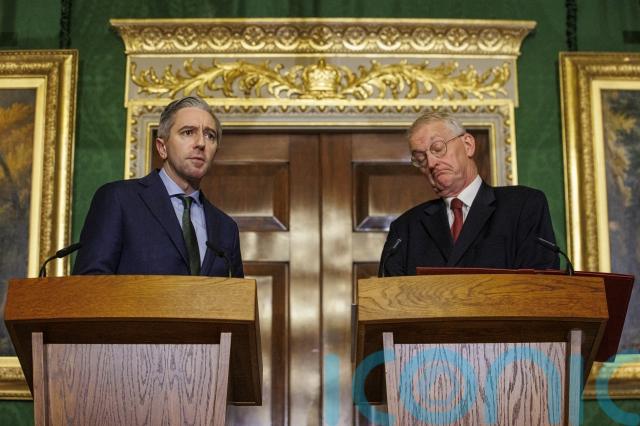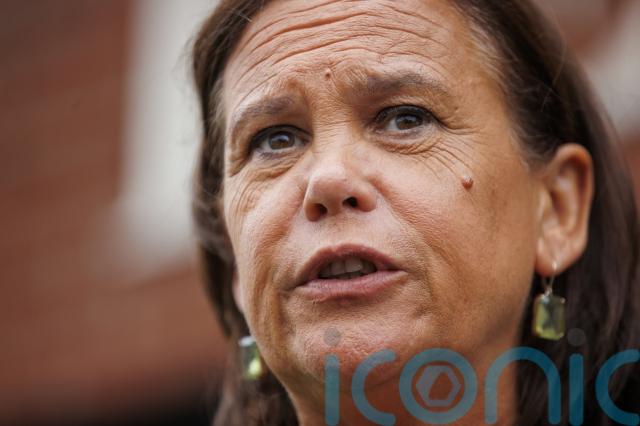
New protections being offered to veterans engaging with legacy processes in Northern Ireland will also be available to any other participants, Hilary Benn has insisted.
The Northern Ireland Secretary said the measures outlined by Minister for Veterans Al Carns, such as allowing veterans to give evidence remotely without travelling to Northern Ireland, were about providing “pastoral care” to former military personnel who had served during the Troubles.
The measures, published on Friday, were described as “new protections, rights and safeguards for Northern Ireland veterans”, prompting media questions as to whether former soldiers were being offered special treatment.
The six measures relate to veterans’ engagement with the new Legacy Commission or existing Troubles inquests.
They are titled:
– Right to stay at home. Veterans will not need to travel to Northern Ireland to give evidence as a witness to the commission or to an inquest. They will be able to do so remotely.
– Protection from repeated investigations. The Legacy Commission will not “needlessly duplicate” previous investigative work a veteran has already participated in. Fresh investigations will only be instigated if there are “compelling reasons to do so”.
– Protection in old age. The health and wellbeing of veterans will be taken into account by Legacy Commissioners and coroners, meaning some veterans may not be called to give evidence on age grounds.
– Right to seek anonymity. Veterans can request anonymity when giving evidence.
– Protection from cold calling or unexpected letters. Veterans will be approached about engaging with legacy processes by the Ministry of Defence in the first instance, not directly by coroners or Legacy Commissioners.
– Right for voice to be heard. Veterans’ representatives will be part of the Legacy Commission’s statutory Victims and Survivors Advisory Group to ensure their perspectives are considered.
Mr Benn described the measures as “reasonable and fair provisions” for those who “put their lives on the line to serve the state and protect the people”.
But he said the measures around engaging with the commission and inquests would not be exclusively for veterans.
“The measures that we are announcing today relate to the work of inquests and the work of the commission and those remote evidence provisions considering the health and well being of those who might be called applies to all witnesses,” said Mr Benn.
He also insisted there would be no bar on the Legacy Commission investigating a case if there are “compelling reasons” for doing so. Mr Benn said the measures would also not apply to future court proceedings if a Legacy Commission probe resulted in a prosecution.
“Where the commission feels that there are compelling reasons for looking at a case again it would be perfectly able to do that and nothing in the measures that we are announcing changes in any way the very long standing position, which is that decisions about any prosecution of anybody are taken independently by the independent prosecutorial service,” he said.
“That has been the case in the 27-and-a-half years since the Good Friday Agreement and previously – and that’s a very, very important principle of our independent legal system.”

Mr Benn highlighted that courts in the UK already took account of the age and infirmity of witnesses when deciding if they needed to be called to give evidence.
Irish deputy premier Simon Harris also stressed that the measures were not specific to veterans.
He told reporters at Hillsborough Castle: “I don’t involve myself in British politics, but the reality is exactly what the Secretary of State said – that the provisions in relation to how witnesses are treated will apply to anybody that interacts with the Legacy Commission and I think that’s an important point that I would make back.”

Sinn Fein president Mary Lou McDonald was asked about the veteran measures as she gave her reaction to the legacy framework in Belfast.
She said her understanding was the steps about giving evidence remotely would apply to anyone engaging in the processes. The republican leader said she had yet to study the measures in detail but made clear there could be no special arrangements that would solely benefit veterans.
“Just to be clear, there can be no side deal for veterans,” she said.
“That would fly in the face of the commitments that governments are making to human rights compliance, to a process that is victim-centred. Those two things are mutually incompatible.”
Ms McDonald added: “Cosy side deals, sweetheart deals, acts that create evasions or cloaks of secrecy or non-disclosure clearly cannot fit in that framework. The governments are well aware of that. Veterans, everybody across society needs to be aware of that too.”
Subscribe or register today to discover more from DonegalLive.ie
Buy the e-paper of the Donegal Democrat, Donegal People's Press, Donegal Post and Inish Times here for instant access to Donegal's premier news titles.
Keep up with the latest news from Donegal with our daily newsletter featuring the most important stories of the day delivered to your inbox every evening at 5pm.